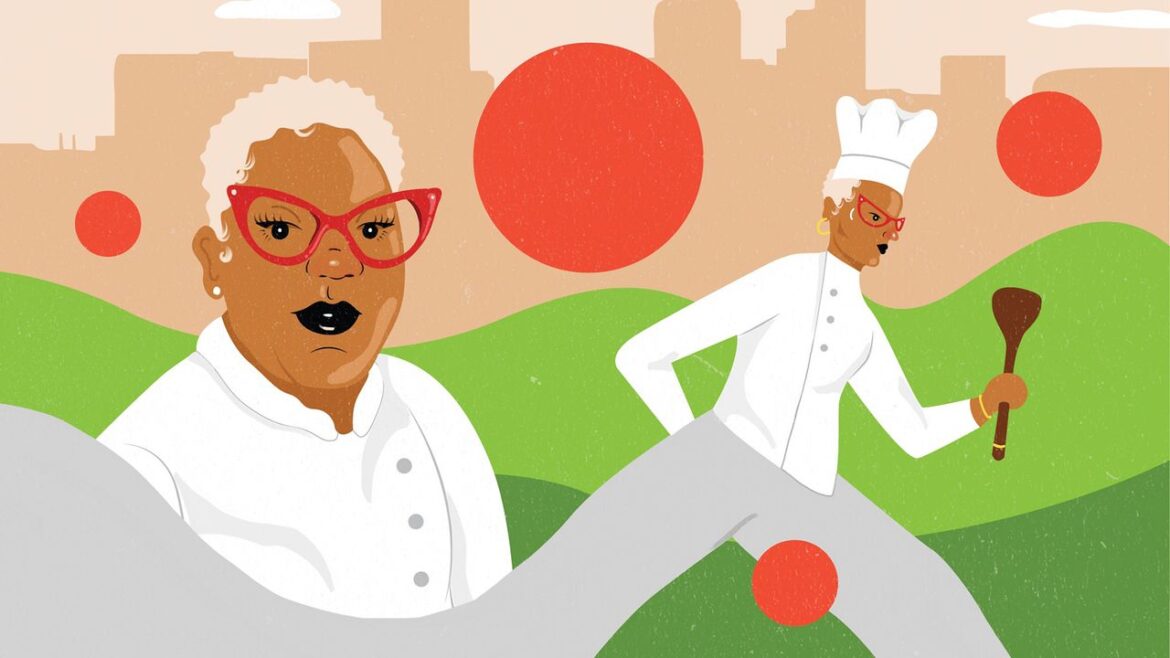Almost as soon as we opened, I realized I was wrong. Some of the other big chefs in the neighborhood were young enough to be my kids, but because I didn’t come up through their channels they didn’t respect me. See, there’s this thing in the industry where if you worked for known white chefs, if you came up through them, then you’re all good. You’re wonderful. But if you got there on your own, well, how the hell did that happen?
Much like Black chefs themselves, soul food has never gotten the respect it deserves. People play down the influence African Americans had on the food of the U.S. and then try to take our traditions away from us. They cook soul food but call it “Southern food” instead. When the whole sustainability thing got big, I watched the dishes we’ve been cooking for centuries become the popular items on all the white Southern chefs’ menus, as if they had never existed before. All the castoffs we grew up on—neck bones and oxtails and hog heads—were disguised and called different names. I’d be at a festival with all these top chefs serving pork terrine on peppery crackers or whatever, and I’m like, “Okay, girl. This is the same stuff all the country people are boiling in big black kettles at the cookout.”
As Black chefs we’re always being asked to explain ourselves. I have to explain why I’m putting macaroni in my paella, even though I learned from a lady in northern Spain who does the exact same thing. And then, if we stick to what we grew up on, we get asked, “Why is your food always soul food? Is that all you can do?” Nobody asks an Italian chef that. Maybe the question should be: How do you do what you do?
Of course there are Black restaurateurs all over the country who have succeeded in spite of everything, who started from the ground and worked our way up without any help. And everyone loves those stories. But when it’s time for the neighborhood restaurant crawl, we don’t get invited because we don’t draw the type of crowd the other chefs are looking for. So they exclude us. And then put Black Lives Matter signs up in their windows.
I’ll say it now, flat out: I left Decatur because of racism. All those microaggressions over the course of my career: racism. It may be more insidious than getting knocked out by a cop—it may be dressed up in nice liberal clothing—but that doesn’t make it any less racist. And I’m done being quiet about that. I’m done sugarcoating ugly truths because at 60 years old I no longer fear the repercussions of honesty. There’s power in calling things what they are.
Looking back now at all these experiences written down on paper makes me cry, but I know each one of them has only strengthened me, as a chef and as a person. I think about my mom dropping me off at an elementary school where I was one of only six Black kids because I tested into the accelerated program. How strong she had to be—and how frightened—watching her daughter as the only Black girl in the Girl Scout troop or at the sleepover. I think about my daughter, Kursten, who was a toddler when I went to culinary school, who has seen me fall to my knees, who has seen me get back up. Now, at 28, she’s the general manager and beverage director at our new Twisted Soul location on Atlanta’s Westside. She understands the importance of ownership, of building a foundation that can stick around for generations so that Black people can come into the world having something.
I’m no longer content just sneaking through the door; I’m going to put my foot in it and hold that door open for the young Black chefs behind me.
The Westside of Atlanta is a mixed neighborhood with a welcoming spirit, a place where people who look like me don’t just survive but thrive. And the new Twisted Soul is a safe space—a space for positivity and communion and feeling good, both for the young Black chefs I mentor and the diners who eat with us. Come by and we’ll serve you hoisin-braised oxtails and sticky sweet potato pone and the best fried fish you ever tasted. COVID-19 has changed things, but we’re resilient. There may be a shortage of prime meats, but there are plenty of neck bones, and I’ve always known how to make something beautiful out of the things no one else wants.

